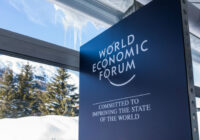International business consultancy and accounting firms have reached an unchartered phase in the business life cycle. These behemoths of commerce, often tasked with keeping both public and private sector players in check, have now grown powerful enough to pose a threat to entire countries, if not the global economy. After decades of predatory and self-serving behavior, resistance is growing that may well ring in the end of the consulting firm’s era.
India may have provided the initial impetus for pushing the consultancy system over the brink. The country is currently in the process of banning one of the so-called Big Four accountancy and consultancy firms, Deloitte, for aiding financial fraud. New Delhi says it has detected several violations of auditing standards by Deloitte while investigating IFIN, a unit of Infrastructure Leasing & Financial Services, whose debt defaults in 2018 triggered widespread fear of financial contagion.
Fraud at IFIN was “nothing short of organized crime,” India’s Ministry of Corporate Affairs has charged, with the firm “actively aided and abetted by the statutory auditors.” While Deloitte is contesting a government call for a five-year ban on new business, it appears the ministry plans to invoke section 140 (5) of the Companies Act to debar the firm for alleged malpractice.
New Delhi has already banned another Big Four player, PricewaterhouseCoopers (PwC), over massive corporate scandals, with the two-year ban by market regulator Securities and Exchange Board in effect since 31 March last year. This followed the collapse of software firm Satyam Computers, resulting after PwC’s years of accounting malpractices had inflated company earnings and assets. The collapse cost shareholders more than $2 billion and shook India’s IT industry to its core.
Global Scandals
With India’s crackdown, consultancies and auditors are facing an unprecedented crisis the world over as ever more scandals — and the resulting damage inflicted on entire countries and populations — are revealed.
At the beginning of the year, Deloitte was fined £415,000 ($518,000) by Malaysian regulators for audit failures linked to the scandal-ridden state fund 1MDB. Established more than a decade ago, the $583-million investment was meant to finance much-needed development projects across the country. Thanks to endemic corruption, 1MDB accumulated losses of $10 billion, emerging as one of the largest cases of gross corruption in the region. The Malaysian Securities Commission has since struggled to decide if Deloitte was “aiding and abetting” in the graft or was “merely negligent.” As far as the regulator is concerned, there is no third option.
Harrowing stories from South Africa highlight the ruthlessness of these firms evidently operating in a morality-free void. Not shying away from helping corrupt politicians and their agendas, under former president Jacob Zuma major consulting players have all been shown to have dirtied their hands in aiding Zuma’s project to effectively “capture” the South African state.
According to a new commission led by Judge Robert Nugent, the hollowing out of government bodies under Zuma’s nine-year presidency proved to be a boon for audit and consulting firms: Bain & Co. crippled a revenue agency in a restructuring; McKinsey & Co. botched a turnaround of the bankrupt public energy giant Eskom; and KPMG missed countless red flags in its audit of Gupta family-linked entities. The Nugent inquiry has many asking, “Who audits the auditors?”
This is the point that even rich European countries are overdue asking. After all, consultancies not only dabble in politics, such as in the ongoing scandal involving McKinsey and Accenture in the allocation of lucrative defense contracts in Germany. Beyond that, they also aid billionaires in further increasing their wealth by crowding out the competition.
A case in point is Spain, where Mexican billionaire Carlos Slim hired Ernst & Young (EY), another Big Four consultancy firm, to perform the valuation of real estate company Realia. EY duly did so by applying the controversial ECO method, which allowed Realia to present its assets as undervalued, thereby permitting Slim to carry out repeated capital injections that raised the number of shares under his control for a value lower than the real one. In a hostile takeover of sorts, this has left minority stakeholders like British fund Polygon out in the cold.
The Coming Downfall
These revelations may well be a sign of their coming reckoning. Consultancy and accountancy firms are the only ones big enough to audit states or multinational corporations (MNCs), and have thus developed into quasi-cartels capable of influencing the paths of entire countries through their intimate connections to the centers of power and decision-making.
While their work as auditors is no doubt crucial to providing accurate reports to shareholders, they have a broader responsibility to simultaneously safeguard economies on a national and global scale. That is, after all, what they are paid to do. Or so the theory goes.
In reality, they have aided those with financial interests to avoid taxes and cook the books since their first conception in the ancient economies of Mesopotamia and Babylonia. Consultancies in their modern form rose during the industrial boom of the 19th century, which saw accounting become an essential tool in the aggregation of capital. They have always provided their services to aid MNCs, politicians or the global rich to transfer wealth from society to capital.
To break the vicious circle, the relationship between politics and private consulting firms needs to be honestly reconsidered. After all, despite their actions, companies like the Big Four have escaped responsibility and are thriving because the sector is largely unregulated. None of this, however, is in the public interest. As more scandals become public, the demand to hold the accountants accountable is rising. It cannot be resisted forever.
The views expressed in this article are the author’s own and do not necessarily reflect Fair Observer’s editorial policy.
Support Fair Observer
We rely on your support for our independence, diversity and quality.
For more than 10 years, Fair Observer has been free, fair and independent. No billionaire owns us, no advertisers control us. We are a reader-supported nonprofit. Unlike many other publications, we keep our content free for readers regardless of where they live or whether they can afford to pay. We have no paywalls and no ads.
In the post-truth era of fake news, echo chambers and filter bubbles, we publish a plurality of perspectives from around the world. Anyone can publish with us, but everyone goes through a rigorous editorial process. So, you get fact-checked, well-reasoned content instead of noise.
We publish 2,500+ voices from 90+ countries. We also conduct education and training programs
on subjects ranging from digital media and journalism to writing and critical thinking. This
doesn’t come cheap. Servers, editors, trainers and web developers cost
money.
Please consider supporting us on a regular basis as a recurring donor or a
sustaining member.
Will you support FO’s journalism?
We rely on your support for our independence, diversity and quality.






